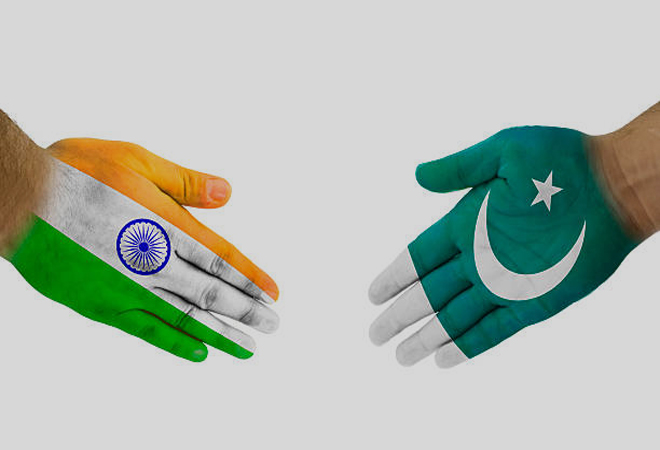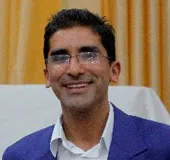
Within hours after Shehbaz Sharif took over as the new Prime Minister of Pakistan, political commentators speculated about the revival of India–Pakistan diplomatic relations, starting with restoring the diplomatic offices by reinstating high commissioners in each other’s countries. Lest we forget, in August 2019, immediately after the Government of India led by Narendra Modi abolished Jammu and Kashmir’s special status and bifurcated the state into two Union Territories, the diplomatic ties between the two neighbours were suspended after Pakistan decided to downgrade its diplomatic relations with India. Consequently, relations between the two neighbours have been at a historic low.
The speculations intensified after Pakistan’s new Prime Minister, Shehbaz Sharif, and Indian Prime Minister, Narendra Modi, exchanged messages of peace, cooperative ties, and stability through social media. This was followed by exchanging letters from the leaders desiring peaceful and harmonious ties between the two countries. Earlier, in his maiden press conference as the Prime Minister of Pakistan, Mr Sharif hinted at building good relations with India. Many regional experts even predicted a breakthrough in the resolution of Kashmir in the future in the backdrop of these statements made on each on each side of the border.
Immediately after the Government of India led by Narendra Modi abolished Jammu and Kashmir’s special status and bifurcated the state into two Union Territories, the diplomatic ties between the two neighbours were suspended after Pakistan decided to downgrade its diplomatic relations with India.
Indeed, some of the critical developments vis-à-vis India–Pakistan relations took place while Pakistan Muslim League (N) was in power—the annunciation of Composite Dialogue in 1997, the Lahore Bus Yatra in 1998, and the meeting between Prime Minister Modi with his Pakistani counterpart Mian Nawaz Sharif after the former made a surprise visit to Lahore—the first visit to Pakistan by an Indian premier in more than 10 years. Prime Minister Modi even invited Mian Nawaz Sharif, the then Prime Minister of Pakistan, to his swearing-in ceremony when he was elected in 2014. So being the brother of Mian Nawaz Sharif and a senior member and current president of the Pakistan Muslim League (N), Shehbaz Sharif and his key policy decision cannot be seen in isolation from his brother and party politics. Given this, Shehbaz Sharif should be seen as an extension of Nawaz Sharif, who, despite living in self-exile, holds an important position and is an influential member of the party.
However, the question remains how far Shehbaz Sharif representing a coalition government in Pakistan, can go to revive and improve bilateral relations with India, given the peculiar political scenario in his country. He has to overcome multiple domestic challenges before he decides to strengthen ties with India. Below, we briefly discuss some of the significant factors which will prevent any breakthrough with India.
First and foremost, the national assembly elections in Pakistan are likely to happen early next year. The national assembly is valid till August next year. Therefore, it will be too treacherous for Shehbaz Sharif to finalise any deal with India on critical issues like Kashmir. Given the political hullaballoo in his country facing a severe economic crisis, it is too early for him and his party workers to read and assess the political behaviour of the general public over India–Pakistan relations. People in Pakistan at the moment are primarily concerned about rising inflation and economic distress in the country. Therefore, it will be impossible for any political party to decide the political manifesto for the upcoming elections. Most political parties will hesitate to underscore foreign policy agendas in public rallies. The same is the case with PML (N) and the current Prime Minister of Pakistan, Mr Shehbaz Sharif.
Given the political hullaballoo in his country facing a severe economic crisis, it is too early for him and his party workers to read and assess the political behaviour of the general public over India–Pakistan relations.
Secondly, the army factor in Pakistan’s foreign policy has always been vital. In the past, the army in Pakistan has sabotaged the peace process between the two nations on many occasions. For instance, immediately after the Lahore Declaration, the Kargil War happened; this was followed by the sacking of the then Prime Minister Mian Nawaz Sharif which illustrated this point distinctly. It is believed that the Pakistani Army was behind the Kargil incursion in 1999. Similarly, within days after Modi’s Lahore visit, the Pathankot incident happened, followed by the Uri attack which turned bonhomie into acrimony.
The incumbent Pakistan Army Chief General Qamar Javed Bajwa’s neutrality in the recent political upheaval in Pakistan doesn’t mean that it has special consideration for a new coalition government. Once the dust is settled in Pakistan, the army will project itself as the country’s guardian. Therefore, the government has to chalk out its foreign policy cautiously and carefully, and indeed, with the army’s consultation.
Third, the current coalition government in Pakistan may not last for too long. The coalition of around a dozen political parties known as the Pakistan Democratic Movement (PDM) is a disparate gathering and had only a single binding factor—the removal of Imran Khan. Beyond this, not much is found to take them along to run the government for another 12 months. Notably, Pakistan Peoples Party (PPP) and the PML(N) are arch rivals that are unlikely ever to have an electoral adjustment with each other. In 2008, PML-N agreed to form a coalition government with the PPP. But with the resignation of President Pervez Musharraf in August 2008, PML-N withdrew from the coalition government because of disagreements and reverted to politics of confrontation. According to Pakistan expert, Sushant Sareen, it is difficult that Shehbaz Sharif might be able to give a stable government for a few months. The way the alliance got together has many reasons, and the main point was the removal of Imran Khan as PM, electoral reform, and change in the laws made during Imran Khan’s tenure. The expert believes that due to a dozen of multi-party coalitions and the country's economic problems, Shehbaz might hand the control over to a caretaker government and then go for elections in a few months. It is pertinent to mention that a government composed of such diverse political parties has never come into power in Pakistan's history. According to Dr Moonis Ahmar, Shehbaz Sharif’s position is more fragile than Imran Khan’s. Considering the fragile nature of the new government in Pakistan, India won’t be interested in starting any structured dialogue with Pakistan. Moreover, the Ukraine War has kept India busy with other priorities.
The expert believes that due to a dozen of multi-party coalitions and the country's economic problems, Shehbaz might hand the control over to a caretaker government and then go for elections in a few months.
The Government in India, led by the country’s most powerful Prime Minister, Narendra Modi, has gone beyond and has been able to restrict the Kashmir crisis within boundaries. While responding to Sharif’s seeking ‘peaceful and cooperative’ ties with India, Prime Minister Modi reiterated that ‘talks and terror can’t go together’. Moreover, frequent references to Kashmir by Shehbaz Sharif can become a major irritant in the prospectus of normalising relations with Pakistan.
Considering these factors, it is unlikely that India–Pakistan relations will see any improvement in the near future. One may witness some improvements in terms of revival in Track II dialogues and back-channel diplomacy. But it is too early to predict the resumption of a structured peace process at the official level, not at least shortly.
The views expressed above belong to the author(s). ORF research and analyses now available on Telegram! Click here to access our curated content — blogs, longforms and interviews.




 PREV
PREV


